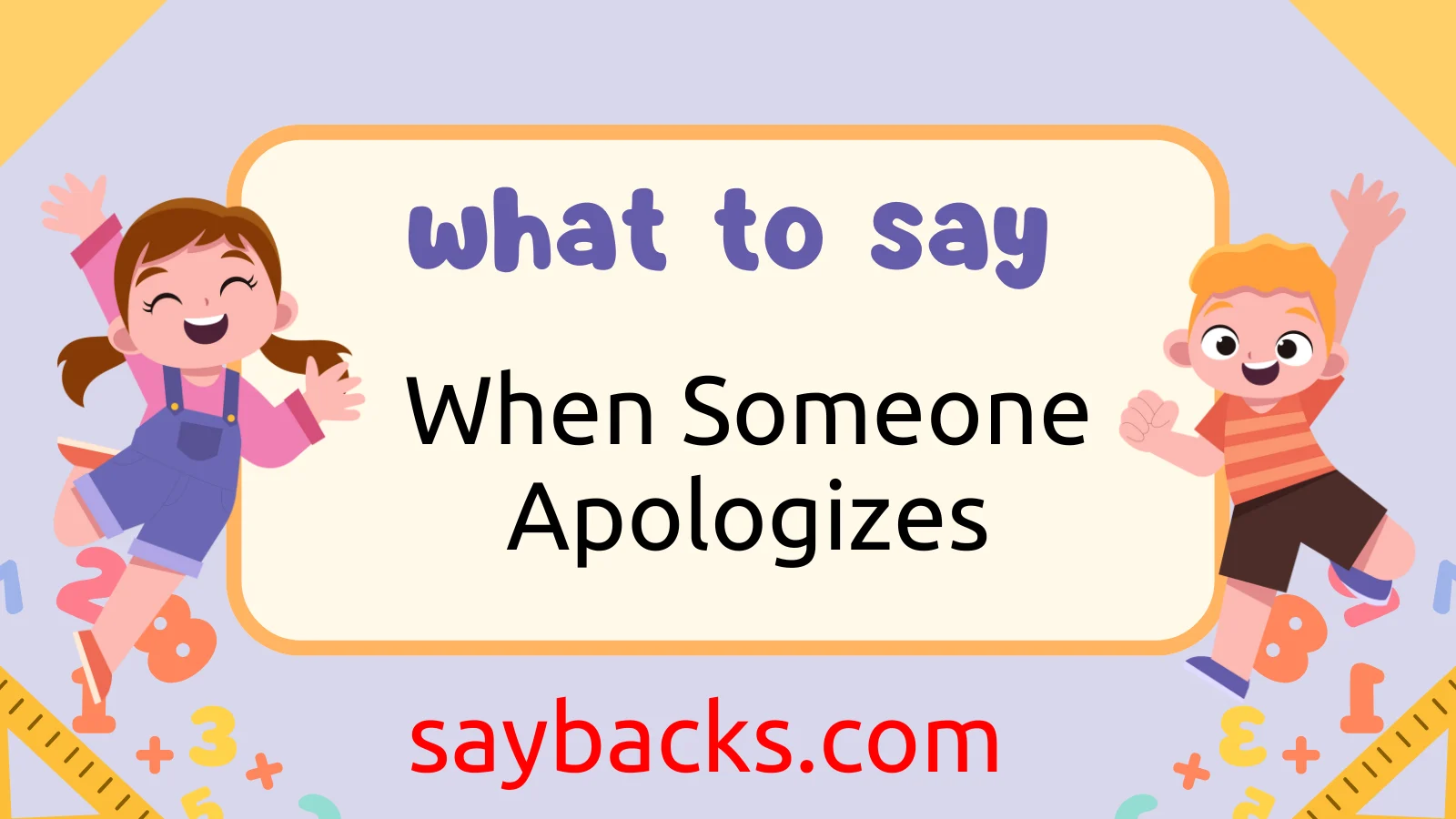Someone says, “I’m sorry”—and suddenly, all eyes are on you. What do you say next? Whether the apology is big or small, knowing what to say when someone apologizes can make a huge difference in how things move forward. The right words can help heal hurt feelings, rebuild trust, or simply show that you’re listening.
In this article, we’ll explore thoughtful, kind, and simple ways to respond when someone apologizes—whether you’re ready to forgive or still feeling unsure. These real-life examples and tips will help you keep the conversation honest and respectful.
1. When You Accept the Apology
A simple “thank you” goes a long way
If you feel ready to move on, let the person know. You don’t have to say a lot—just enough to show you appreciate the effort.
What to say:
- “Thank you. I appreciate your apology.”
- “It means a lot that you said that.”
- “I forgive you. Let’s move forward.”
Why it works:
It shows grace and understanding, helping both sides feel better and ready to heal.
2. When You’re Still Hurt
Be honest without being harsh
Sometimes, you’re not ready to forgive just yet—and that’s okay. You can still respond in a calm and respectful way.
What to say:
- “I hear your apology, but I still need some time.”
- “Thank you for saying that. I’m still feeling hurt, though.”
- “I’m not sure how I feel yet, but I appreciate you owning it.”
Why it works:
It gives space for real feelings while keeping the door open for understanding.
3. When It’s a Small Mistake
Keep it light, if the moment is
Not every apology is deep—sometimes it’s about stepping on your foot or texting back late. In those cases, keep your response friendly and low-pressure.
What to say:
- “No worries at all!”
- “It’s okay, don’t stress.”
- “We’re good!”
Why it works:
It shows you’re not holding a grudge and keeps things relaxed.
4. When You’re Not Sure the Apology Is Sincere
You can stay kind and cautious
If the apology feels forced or fake, you’re allowed to protect your space while staying respectful.
What to say:
- “Thanks for saying that.”
- “I hope things change moving forward.”
- “I’m listening, but actions speak louder.”
Why it works:
It acknowledges the apology without giving full trust if it hasn’t been earned yet.
5. When You Want to Encourage the Apology
Help the other person feel safe
If someone struggles to say “I’m sorry,” your reaction can help them be more open next time. Respond with care.
What to say:
- “That was brave of you to say.”
- “I really respect you for apologizing.”
- “Thank you. That took courage.”
Why it works:
It builds trust and encourages honesty in the relationship.
Final Thoughts: What to Say When Someone Apologizes Comes From the Heart
When someone says “I’m sorry,” how you respond sets the tone. Whether you’re ready to forgive, need time, or just want to keep things light, choosing the right words shows empathy and care. What to say when someone apologizes doesn’t have to be perfect—it just needs to be real, kind, and true to how you feel.

